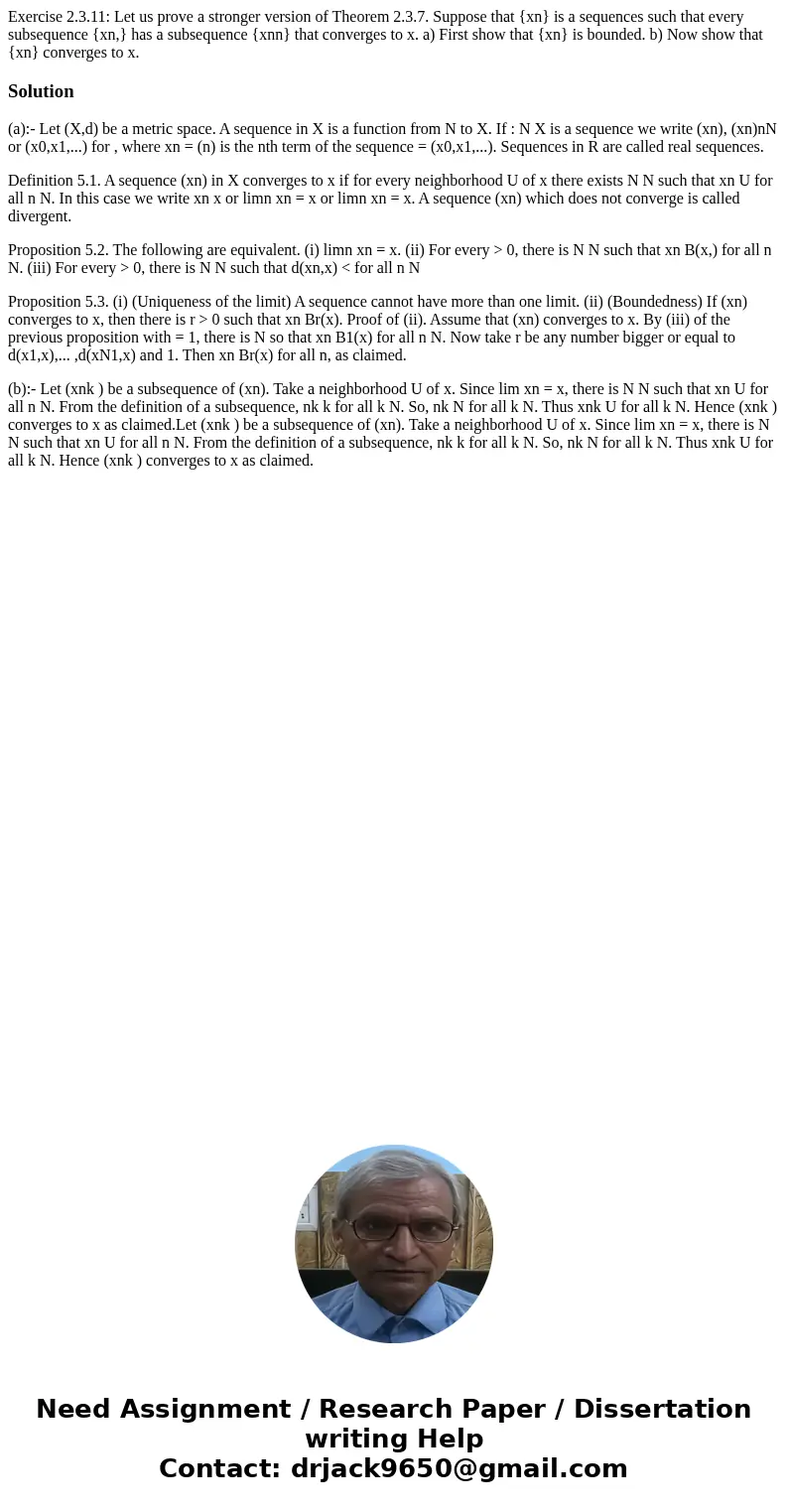Exercise 2311 Let us prove a stronger version of Theorem 237
Solution
(a):- Let (X,d) be a metric space. A sequence in X is a function from N to X. If : N X is a sequence we write (xn), (xn)nN or (x0,x1,...) for , where xn = (n) is the nth term of the sequence = (x0,x1,...). Sequences in R are called real sequences.
Definition 5.1. A sequence (xn) in X converges to x if for every neighborhood U of x there exists N N such that xn U for all n N. In this case we write xn x or limn xn = x or limn xn = x. A sequence (xn) which does not converge is called divergent.
Proposition 5.2. The following are equivalent. (i) limn xn = x. (ii) For every > 0, there is N N such that xn B(x,) for all n N. (iii) For every > 0, there is N N such that d(xn,x) < for all n N
Proposition 5.3. (i) (Uniqueness of the limit) A sequence cannot have more than one limit. (ii) (Boundedness) If (xn) converges to x, then there is r > 0 such that xn Br(x). Proof of (ii). Assume that (xn) converges to x. By (iii) of the previous proposition with = 1, there is N so that xn B1(x) for all n N. Now take r be any number bigger or equal to d(x1,x),... ,d(xN1,x) and 1. Then xn Br(x) for all n, as claimed.
(b):- Let (xnk ) be a subsequence of (xn). Take a neighborhood U of x. Since lim xn = x, there is N N such that xn U for all n N. From the definition of a subsequence, nk k for all k N. So, nk N for all k N. Thus xnk U for all k N. Hence (xnk ) converges to x as claimed.Let (xnk ) be a subsequence of (xn). Take a neighborhood U of x. Since lim xn = x, there is N N such that xn U for all n N. From the definition of a subsequence, nk k for all k N. So, nk N for all k N. Thus xnk U for all k N. Hence (xnk ) converges to x as claimed.

 Homework Sourse
Homework Sourse